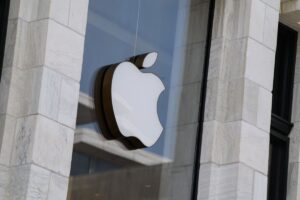[ad_1]
Apple has offered a set of commitments to competition regulators in the European Union aimed at resolving concerns focused on NFC payments and mobile wallet tech on iOS, its mobile operating system. The EU suspects Apple of unfairly favoring its own mobile payment tech, Apple Pay, and squeezing out the ability of rivals to develop competing contactless payment offerings on its mobile platform.
The iPhone maker is proposing to let third party mobile wallet and payment service providers gain the necessary access to NFC functionality on iOS devices, free of charge, via a set of APIs — without having to use its own Apple Pay or Apple Wallet technologies.
Per the Commission, third parties would still not gain access to a component of Apple’s mobile hardware, a special chip called the secure element, which it uses to enhance the security of transactions made using Apple Pay. But it has offered to allow “equivalent access” to NFC components — in what’s being referred to as “Host Card Emulation (‘HCE’) mode”, which the EU says would “securely store payment credentials and complete transactions using NFC, without relying on an in-device secure element”.
Apple says it would apply the proposed commitments to all third party mobile wallet app developers in the European Economic Area and to all iOS users with an Apple ID registered in the region. “Apple will not prevent the use of these apps for payments in stores outside the EEA,” the Commission adds.
Further pledges offered include a commitment by Apple to provide third parties with additional features and functionality — including “defaulting of preferred payment apps, access to authentication features such as FaceID and a suppression mechanism”.
It has also committed to applying “fair, objective, transparent, and non-discriminatory” eligibility criteria to grant NFC access to third parties — which will have to conclude an ADP license agreement to gain access. Additionally, Apple has agreed to set up a dispute settlement mechanism under which any decisions it makes to deny access to NFC input will be reviewed by independent experts.
The Apple Pay competition saga dates back several years at this point. The EU kicked off a formal investigation of concerns in June 2020, with the first charges following in May 2022. The Commission’s preliminary findings remain that Apple abused a dominant position in the market for mobile wallets on iOS to prevent competitors from being able to offer NFC-enabled contactless payments on its platform and develop other mobile wallets that could compete fairly with Apple Pay.
Apple will be hoping the commitments it’s proposing are enough to satisfy regulators’ concerns and settle the matter. But that still remains to be seen.
The Commission has opened a consultation seeking feedback on Apple’s offer — and is allowing a month from publication of the full text of Apple’s proposed commitments in the EU’s Official Journal for submissions to be made. After which it will take a decision on whether or not to accept them. If it decides they are not adequate to resolve concerns Apple may face pressure to offer more concessions to steer out of the competition scrutiny.
If the commitments are accepted by the EU they would be in force for ten years, with an independent monitoring trustee appointed to monitor application. Any future failure to honor accepted pledges could see Apple fined up to 10% of its worldwide turnover without the need by the Commission to prove an infringement of EU antitrust rules.
The Apple Pay case pre-dates ex ante competition legislation the bloc has since enacted and which Apple is subject to; having been designated, in September, as a so-called “gatekeeper” under the Digital Markets Act (DMA). The regulation includes provisions that are intended to protect the freedom of business users to choose alternatives to gatekeepers’ services — so it looks aligned with the thrust of the Commission’s enforcement on Apple Pay, even though this case was brought under the EU’s pre-existing competition rules.
The DMA, which gatekeepers are expected to be compliant with by March 7, puts a series of up-front obligations on gatekeepers, including requiring they do not unfairly flex their market muscle by forcing business users to use their own services. And although Apple’s payment tech, Apple Pay, has not been designated a “core platform service” the iOS App Store has. And the EU’s hope for the DMA is that it greatly speeds up the process of tackling abuses of dominance in digital markets.
[ad_2]
Source link



